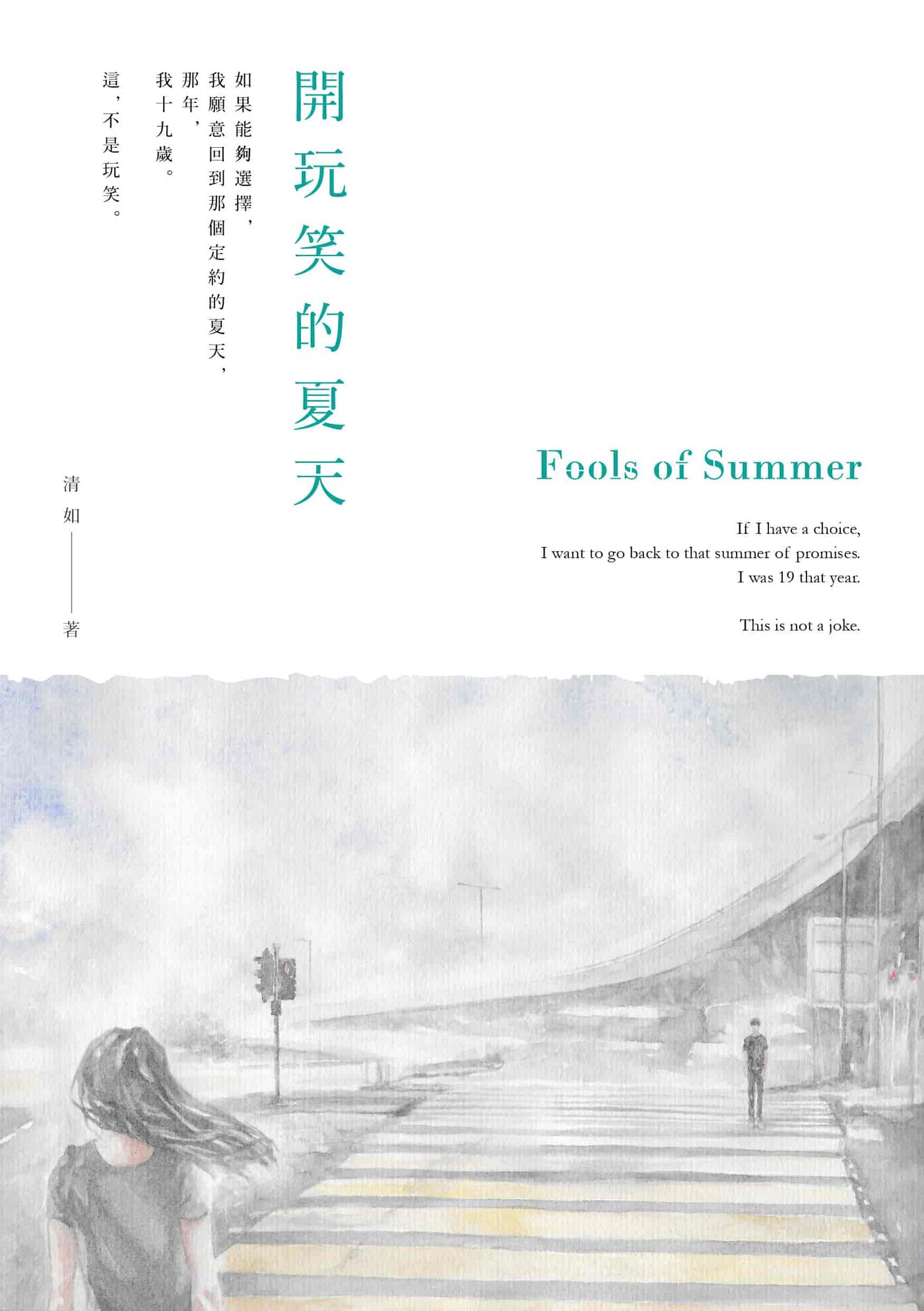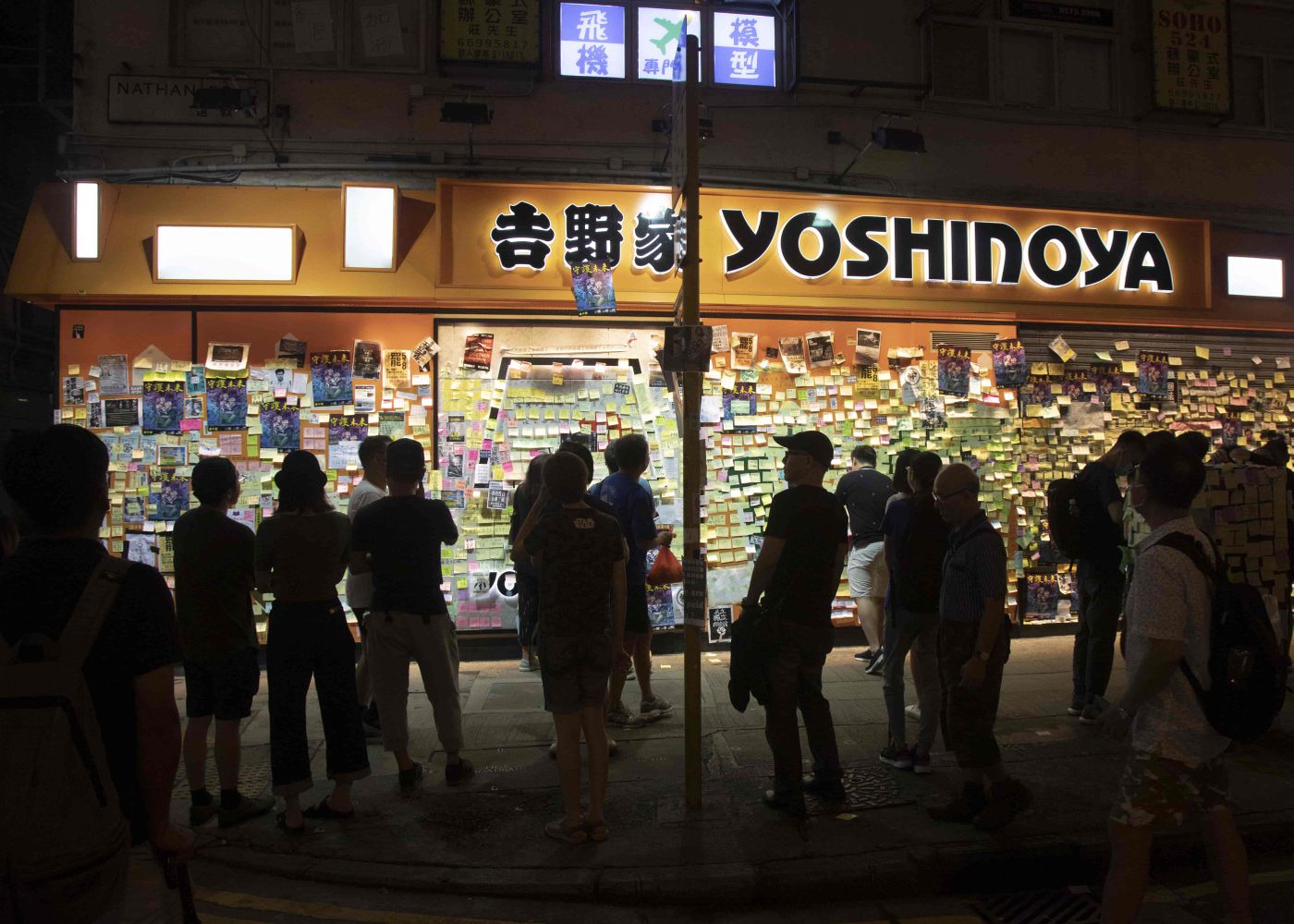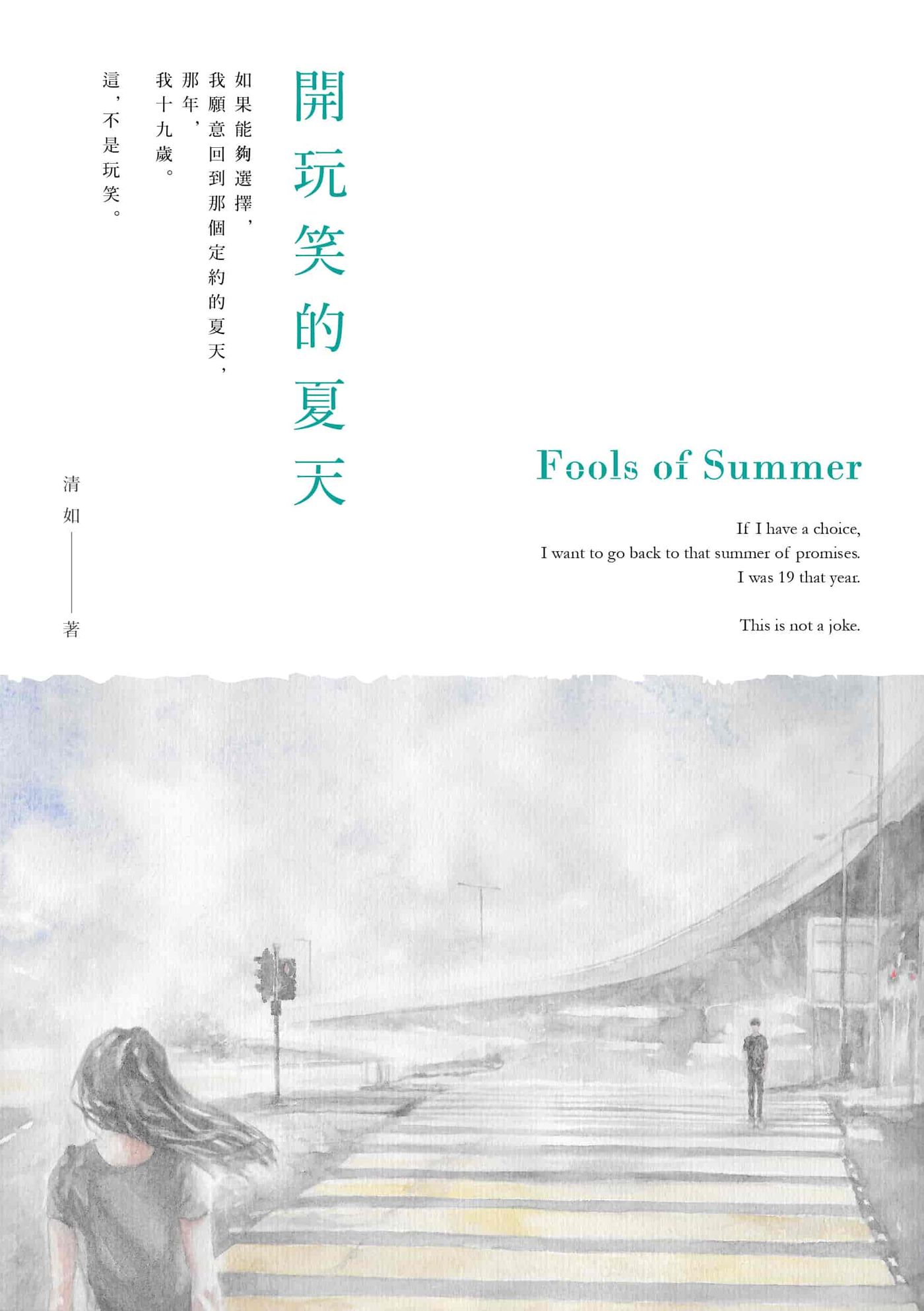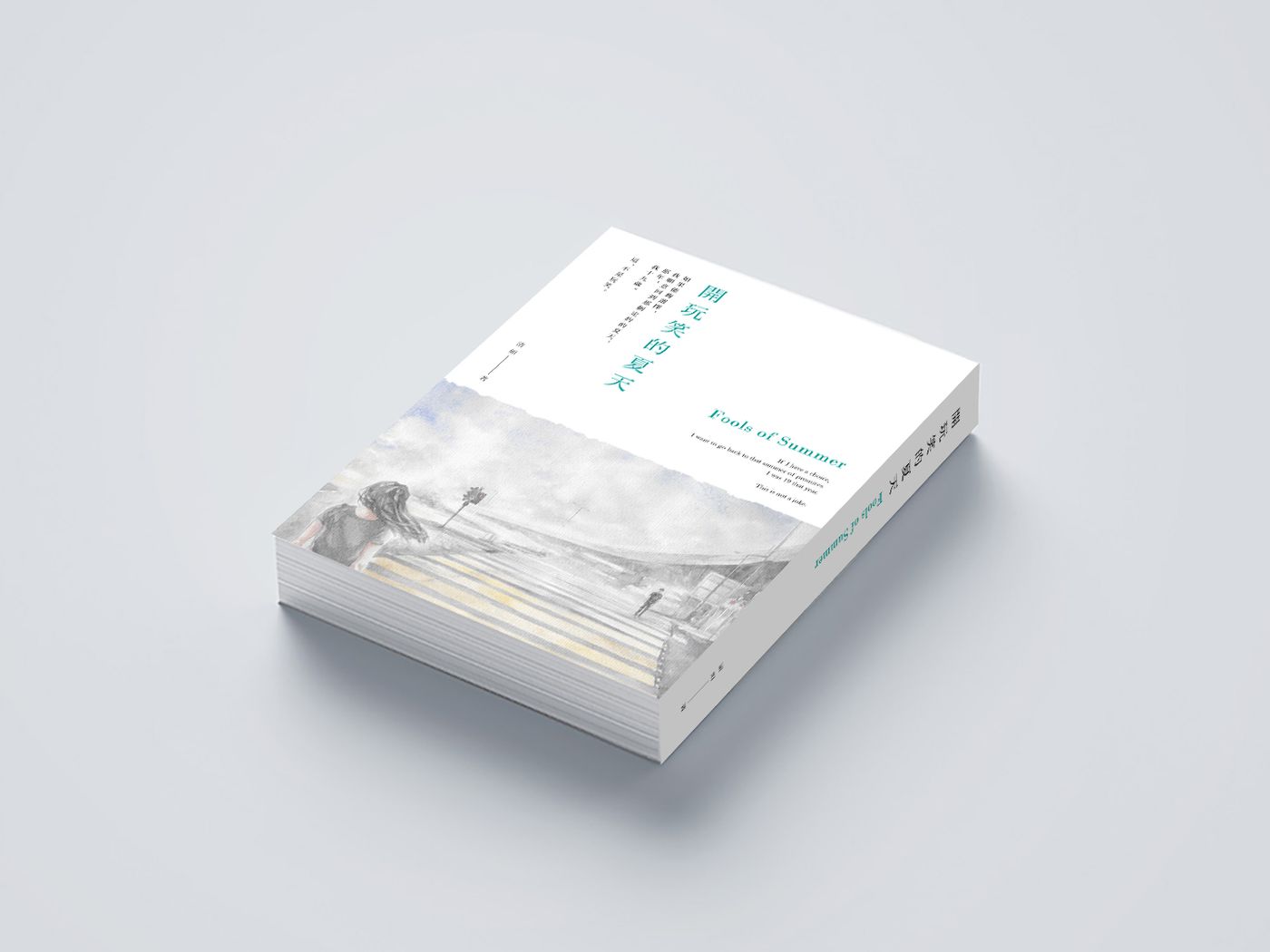2019不止是開玩笑的夏天 千禧後作者:生於這個時代 有責任記錄下去
《開玩笑的夏天》由作者清如命題,兩年之後她已升上大學,尋覓她的理想。回頭看2019年的夏天,她說這仍是酣甜的「初戀」,就算這趟初戀如朝露,也甘心被情愛戲弄。
在序言她寫道:「如果能夠選擇,我願意回到那個定約的夏天,那年,我十九歲。這,不是玩笑。」那年夏天,長埋在心的是一種共同的記憶、歷史,你和我都不想忘記,更不想這只是一場夢。

沉澱兩年後,《開玩笑的夏天》終於付刷成書,清如還在忙着收集「新香港人」讀者的訊息,希望記下他們的思緒。在這個年代,受訪者的片刻,筆下的隻字記錄,也是大時代下的珍物。
「出書之前,我發了給《開玩笑》的受訪者,原來有受訪者已Block了我,有些會警告我不要亂寫東西。」
清如縱有洩氣的時候,她坦言感激運動之中,受訪者敞開心扉訴說他們對運動的看法,2020年立了港區國安法,清如形容就像斬了中港的橋,彼此再難有信任。
她只希望藉此書,將人與人之間的關係拉近一點,畢竟這度橋已斷,修補不易。
想跟這座城市同呼吸
清於2017年跟隨媽媽到香港生活,自少在內地讀書。她說少年時代沒有公民參與,與出生地感受不到連結。剛到埗香港,她在傘落社區的活動,出席講座,吸收公民意識,結識了很多「新香港人」,她發現原來內地青年也有獨立思考,只是在內地沒有表露出來,香港成為了他們的「相認」之地。在這些公民活動中,她聽到經歷者說雨傘運動的歷史是她最悅心的事,這事在內地動輒會被扯上「外國勢力」,在內地沒有人敢開腔談,一出聲就是一場謾罵。
不能談的歷史如天安門八九六四、香港雨傘運動,在清如17歲來那年來一次思考大衝激,她第一次感受到與一座城市「同呼吸」的感覺,「突然之間,好想跟香港一起擁有這種歷史、記憶 」。2019年六月爆發反修例運動,她在學校站在最前線,發起罷課,參與百萬遊行,在街上曾經振臂灑熱汗:香港人加油!

運動中在牽引與排擠之間
她雖是廣東人,身邊朋友未必察覺她只是剛來的「新香港人」,不會以「他者」的身份看她。可是現實生活中她會跟內地交往,夾在內地與香港之間,總有點違和感,特別在民主自由這議題上。
清如感受到,「新香港人」在反修例事件半年間思緒十分拉扯。她與在港內地人見證內地傳媒封鎖深圳河以南的訊息,香港那邊如火如荼地創下開埠以來最激烈、最齊心的公民抗命活動。清如說,身邊的「新香港人」對於六月200萬人遊行,港人非暴力抗爭的堅持,感到十分驕傲,普遍是傾向支持港人運動。
在書中清如記錄了在港內地青年,勇敢地將一張張文宣網傳到內地,「圖也是反著發的,竟給蒙混過關」,事實上新聞當時記載確有內地青少年過境參與示威而被拘捕,這證明一河相隔,網絡還是在影響內地年輕人。轉捩點在於七月,清如感受到身邊的人自從七月一日入立法會一事,居港內地人開始對「暴力」反感,內地大專生不贊成責罵校長、老師,對運動轉向反感。
清如看到內地人在支持與不支持之間在遊走,也被七月之後內地傳媒發起的民族主義所牽引,同時也在朋輩強力的壓力氛圍下只能表示反對運動,有些甚至在網絡上消失,用自我的「社交絕緣」的方法謝絕任何政治討論。
清如縱使曾發起罷課,在運動朦朧之間,她多了一份猶豫和迷網。她一口氣訪問了26人,他們都是在港內地人、在內地港人或居港外藉人,在訪問中談他們對運動的看法,也滲透了他們的愛。

跨世代的歷史感通,世代之爭誰之錯
清如完成訪問之後,她下了一點總結:一個人的面貌很難用「黃藍」去描繪,他們是由成長經驗刻劃他的人生,縱使有不同的社會立場,26名受訪者都是愛香港,想下一代好。只是,間斷式的歷史、時代認知,困惑在陝隘的身份認同,影響着一代人愛的方式⋯⋯。
在《開玩笑的夏天》,清如找到一些或會被標籤為「藍絲」的香港人開腔談運動。他們是別人的爺爺嫲嫲,別人的師傅,說到香港,他們依然痛心。他們的記憶停留在過去的香港,那時遍地機會,令他們得以溫飽。經歷二次世界大戰的長者向清如分享戰後他在街上的所見所聞,途人在大街嘔吐,餓漢一手接着他的嘔吐物,一口吞落肚裹腹,這些駭人聽聞的事都是爺爺嫲嫲不能磨滅的記憶。對於上兩代人,只要有溫飽,社會穩定是最重要。清如訪問了道具師傅,在內地十分吃香,他希望香港年輕人多點回內地見識,不要在香港「搞事」。
上一代香港人滿足於物質層,政治判斷根據他們的個人經驗、那時代的歷史,清如認為上一代在沒有「時代更新」的情況下,脫離新一代的想法,出現嚴重世代之爭,於是記錄2019年的事變得更重要。中港橋已斷,香港內部黃藍撕裂亦包含着時代的分野,清如說,文字記錄是修補裂痕的方法之一。
記錄是一種責任
歷史失去了一塊圖,整座城市失去了跨時代的感通。這激發起了清如一口氣記錄26人在運動中的思緒,而且藉着出書,她希望找更多的「新香港人」,記錄他們的面孔。「現在在我們日常生活的點滴,已很難分得清個人的主張,有一位老師教我:『當你沒有一個共同的敵人,目標不清晰,就好難界誰是朋友』,2021年確是如此。」
「新香港人」的思想如水變換,日月星移,清如希望繼續記錄下去,「過去兩年,在2020年收筆後十分迷失,出書後我感到我有一種記錄香港的責任,我想繼續記錄香港故事,跟香港人同呼吸。」
購買【開玩笑的夏天(中英文合本)】https://hkftr.co/SlsTT

We are not just the fools of summer 2019
“Living in this era, we have the responsibility to record history,” says the millennial author
Ching Yu the author named the book “Fools Of Summer” herself. Two years after this project, she is already a university student, chasing after her dreams. Looking back at the summer of 2019, she said that it is a bittersweet “first love”. Although the first love was gone just in the blink of an eye, she is still willing to be fooled.
In the Preface, she wrote, “If I could choose again, I would go back to that summer of promises. I was 19 years old then. That is not a joke.” That summer is a collective memory and history buried in our hearts. It is not something we want to forget and we don’t want it to just be a dream.
After two years, “Fools Of Summer” is finally published and Ching Yu is now busy collecting messages from “new Hongkongers”. Ching Yu wishes to record their thoughts down. The moments of the interviewees being interviewed and the words recorded by the pen are all valuable in this time of turbulence.
“Before I published the book, I sent the book to my interviewees. It’s only by then I discovered that some of them blocked me and some warned me not to write silly things.”
Although Ching Yu would feel frustrated sometimes, she wants to thank the interviewees for sharing their thoughts genuinely and openly during the movement. The National Security Law is enacted in 2020, Ching Yu thinks this breaks the Mainland and Hong Kong bridge because there would hardly be trust between the two places again.

She hopes to bring people closer together with this book although the broken bridge is not easy to fix now.
Wishing to breathe together with this city
In 2017, Ching Yu followed her mother to come to Hong Kong. She studied in the Mainland since she was small. She said she did not have any civic participation when she was younger and that was why she had no connection with her birthplace. Community activities and talks she joined when she had just arrived in Hong Kong nurtured her civic consciousness. She knew many “new Hongkongers” through these activities. She found that Mainland youths also have their independent thinking, it’s just that they don’t show it in the Mainland. Hong Kong became a place where they could meet each other. In these activities, she listened to people who went through the Umbrella Movement talking about the history of the movement. She thinks this is the most pleasing thing for her. This matter is often associated with "foreign powers" in the Mainland. No one in the Mainland dares to talk about it. There will be a fight if one is to talk about it.
History such as the Tiananmen Square incident in 1989 and the Hong Kong Umbrella Movement were once something Ching Yu could not talk about. When Ching Yu was 17 years old, there was a big shock to her thoughts. For the first time, she "breathed" with a city. "Suddenly, I want to have this kind of history and memory with Hong Kong." In June 2019, the Anti-ELAB movement broke out. At school, she was at the frontline--she launched a strike, participated in the one-million-people protest, and once shook her arms and sweated on the street saying. “Hongkongers, keep it up!”

Being pulled and pushed during the movement
Ching Yu comes from Guangdong so friends around her may not realize that she is just a "new Hongkonger" who has just arrived in Hong Kong and will not look at her as an "other". However, in real life, she would interact with the Mainland and be caught between the Mainland and Hong Kong. There is always a feeling of contradiction especially on the issue of democracy and freedom.
Ching Yu thinks that "new Hongkongers" had a lot of struggles during the Anti-ELAB movement. She and the Mainlanders in Hong Kong witnessed that the Mainland media blocked the information from Hong Kong. At that time, there was the most intense and united civil disobedience in Hong Kong since the opening of its ports. Ching Yu said that "new Hongkongers" around her were very proud of the non-violent 2-million-people protest in June. They generally tend to support the Hong Kong people's movement.
In the book, Ching Yu records the incident of a Mainland youngster who was then in Hong Kong bravely sent posts advocating protesters’ beliefs to the Mainland, "The posts were sent upside down, surprisingly, they passed." The news at the time recorded that there were indeed Mainland youths who crossed the border to participate in protests and were arrested. This proves that the internet is still affecting young people in the Mainland although we are a river apart. The turning point came in July. Ching Yu felt that since the people around her broke into the Legislative Council on July 1, Mainlanders living in Hong Kong began to oppose "violence." Mainland university students did not agree with scolding principals and teachers and hence they began to differ from the protesters.
Ching Yu saw Mainlanders struggling between supporting and not supporting the movement. Nationalism initiated by the Mainland media after July also affected them. At the same time, under strong peer pressure, they could only express opposition towards the movement. Some of them even disappeared from the Internet by "social insulation" to reject any political discussion.
Even though Ching Yu initiated a strike, she was hesitant and lost during the movement. She interviewed 26 people in one go and all of them were Mainlanders or foreigners living in Hong Kong. During the interview, they talked about their views on the movement and they also permeated their love.
The battle of generations: whose fault is it?
After Ching Yu completed the interview, she had a conclusion: it is difficult to describe a person in "yellow or blue". Their lives are constructed by their experience. Even if they have different political stances, all 26 interviewees love Hong Kong and they take the interest of the next generation into account. It's just that the fragmented history and sense of the times confuse their identities and affect the way a generation loves…
In "Fools Of Summer", Ching Yu found some Hongkongers who might be labeled "blue ribbon" to talk about the movement. They are someone else’s grandparents and masters. They still feel sad talking about Hong Kong. Their memories remain in Hong Kong in the past. There were opportunities everywhere and they could be well fed. An elder who experienced the Second World War shared with Ching Yu what he saw and heard on the street after the war: a person vomited in the street and another man held his vomit and ate it. This kind of incident is something the grandparents will not forget. For the last two generations, as long as they have enough food and clothing, social stability is the most important thing to them. Ching Yu visited the prop master and he is very popular in the Mainland. He hopes that young people in Hong Kong will return to the Mainland to learn more and not "make trouble" in Hong Kong.
The previous generation of Hong Kong people was satisfied at the material level. Based on their personal experience and the history of the era, Ching Yu believes that the previous generation broke away from the new generation. This is why serious generational disputes occurred and recording events in 2019 becomes more important. The Mainland and Hong Kong bridge was broken, the tear between yellow and blue in Hong Kong also contains the division of the times. Ching Yu thinks written records are one of the ways to repair the cracks.
Recording history is a responsibility
History has lost a piece and the whole city has lost its inter-age sense. This inspired Ching Yu to record the thoughts of 26 people and she hopes to find more "new Hongkongers" to record their stories through the book. "It’s hard to distinguish individual opinions in every aspect of our daily lives. A teacher taught me, ‘When you don’t have a common enemy and your goal is not clear, it’s very difficult to find out who your friend is.’ 2021 is like this."
The minds of the "new Hongkongers" are changing like water. The sun, the moon, and the stars are changing, Ching Yu hopes to continue to record.
"The past two years, I was very lost after finishing the book in 2020. After the book was published, I felt that I had a responsibility to record Hong Kong. I want to continue to record Hong Kong stories and breathe with Hongkongers."
About the book
Name of the book: Fools Of Summer
Author: Ching Yu
Publisher: HK Feature Ltd
Publication date: 2021/07
ISBN: 9789887512417
Introduction
“If I could choose again, I would go back to that summer of promises. I was 19 years old then. That is not a joke.” -- Ching Yu, the author
Ching Yu is a millennial "Hongkonger". She loves Hong Kong culture. After coming to Hong Kong for two years from the Mainland, she encountered the Anti-ELAB movement. After experiencing democracy for the first time, she thought a lot about identity. She saw the new immigrants in the frontline and logistics teams. She didn't want to use colors to label a person's values but just wanted to study their thoughts.
2019, it’s a summer that she was willing to be fooled, the girl interviewed 26 people around her and wrote a diary of that year.
That summer, the slurred frontline brother talked freely about democracy and freedom. The three generations of the "Fujian Gang" felt peaceful at home and there was the teacher who secretly said "keep it up" to you... they are also newcomers, they are in the same boat as us.
Do you remember us?
Buy【Fools of Summer】https://hkftr.co/SlsTT